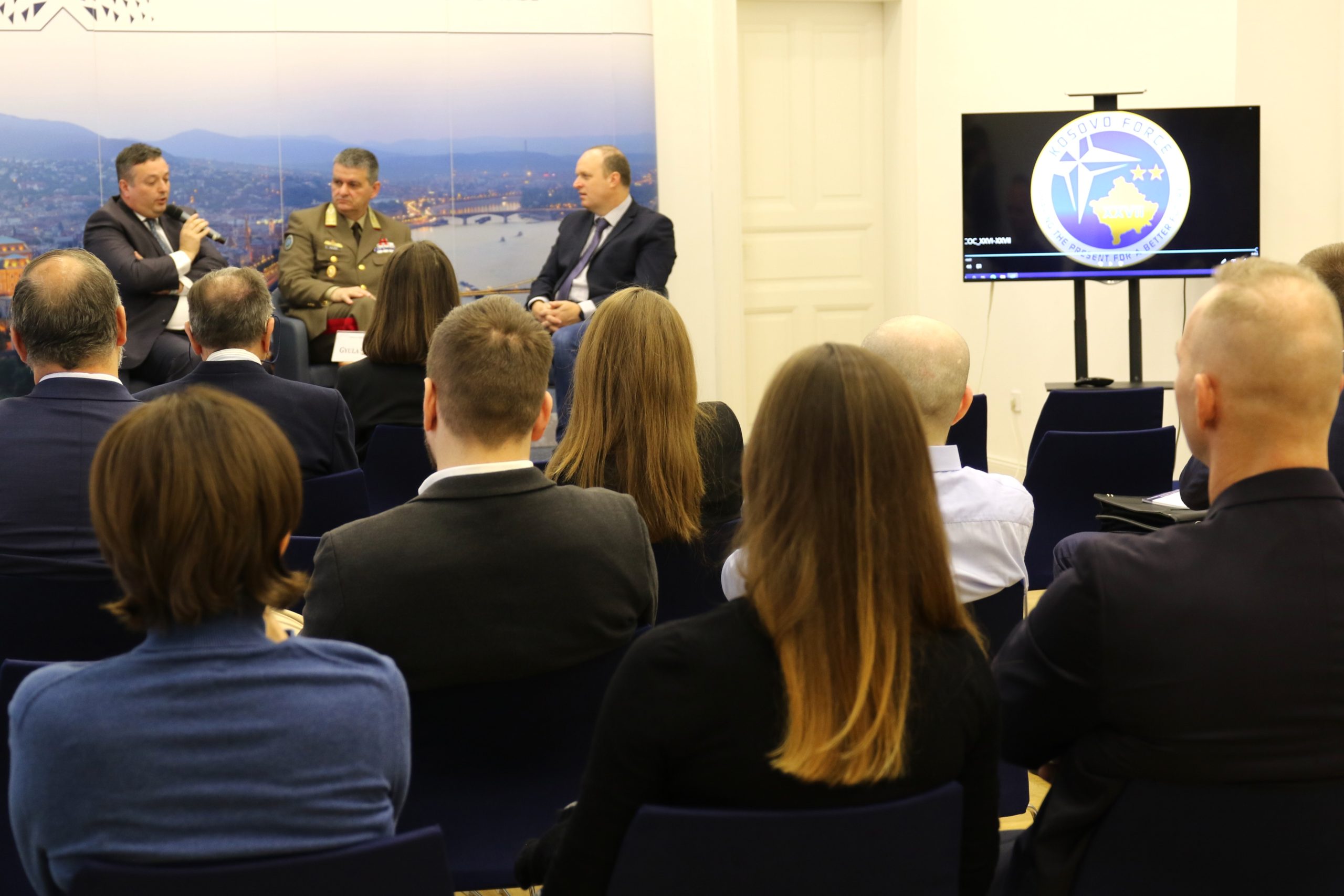The Institute for Foreign Affairs and Trade (IFAT) held a roundtable discussion entitled “A Year at KFOR: Lessons Learned” on 24 November 2022. The event featured a keynote speech by Major General Ferenc Kajári, Former Commander of Kosovo Force (KFOR) and a moderated discussion with the participation of Major General Kajári and Ambassador Gyula Somogyi, Former Chief Political Advisor to COM KFOR and Head of the Department for Security Policy and Non-proliferation at the Ministry of Foreign Affairs and Trade of Hungary. The event was moderated by Péter Wagner, Senior Research Fellow of IFAT.
In his opening remarks, Ambassador Márton Schőberl, Director of IFAT stressed the importance of having a Hungarian commander in charge of an international mission for the first time. This last twelve months can be considered as a success for Hungarian diplomacy as well and IFAT – with its dedicated focus on the Western Balkans – is honoured to be able to share the experiences of the Hungarian commandership with Hungarians and representatives of diplomatic missions.
In his keynote speech, Major General Kajári briefly introduced the background of NATO’s largest and longest-running mission. The Major General highlighted that close cooperation with authorities of Kosovo and Serbia are key to the activities of KFOR. Hungarian soldiers are part of the mission since its establishment (1999) and they also make up the KFOR Tactical Reserve Battalion since 2017. General Kajári also highlighted that having the commander position of KFOR is a success also to the Hungarian Defense Forces; it is a testament that Hungarian armed forces are not only well-equipped but also able to conduct and lead such operations abroad. According to the Major General, the main objectives he set out prior to his commandership have been achieved: KFOR provided continuity between (Italian) commanders, managed to build a good command group and had been able to increase the visibility of the mission itself.
During the roundtable discussion, Ambassador Somogyi pointed out that KFOR is more than a military mission as it also conducts preventive diplomacy daily. Under the Hungarian leadership, approximately 370 meetings with authorities, politicians, ambassadors, and representatives of international organisations were held to deliver KFOR’s up-to-date assessment on the security situation of the operational area. Most of the problems, according to the former Chief Political Advisor, are of political and not security nature.
Although preparations started as early as Autumn 2020, the “real work” proved to be more challenging than it seemed from second-hand experience. Both panellists expressed their gratitude towards their former Italian counterparts as their experience and shared knowledge proved to be highly valuable. The unforeseen challenges – such as the war in Ukraine and the issue with the licence plates – also put KFOR to a test.
Asking about the lessons learned, Major General Kajári mentioned that leading an international mission of 27 different nations, mitigating unforeseen (emergency) situations and a finding a common voice with politicians from Kosovo and Serbia proved to be challenging but gave him valuable experience. Echoing what the former KFOR commander said, Ambassador Somogyi suggested that more diplomats should be nominated to military missions as the last twelve months also gave him a new perspective on how diplomacy works in practice.
Photos by: Institute for Foreign Affairs and Trade (IFAT)

